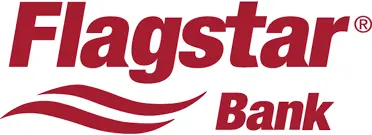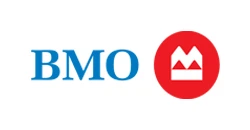2025 FHA Loan Limits in South Carolina
If you’re buying a home in South Carolina, you may want to consider an FHA loan. These mortgages, guaranteed by the Federal Housing Administration (FHA), make homeownership more accessible for first-time homebuyers and others who might not qualify for a conventional loan.
For most counties in South Carolina, the FHA loan limit is $524,225 for a single-family home but that limit is as high as $632,500 in Berkeley, Charleston and Dorchester counties. Read on to learn about FHA loan limits, how to qualify for an FHA loan in the Palmetto State and how to use one to buy a multifamily property.
South Carolina FHA loan limits by county
South Carolina single-family FHA loan limits
| County name | One unit | Two units | Three units | Four units | Median sales price |
|---|---|---|---|---|---|
| ABBEVILLE | $524,225 | $671,200 | $811,275 | $1,008,300 | $150,000 |
| AIKEN | $524,225 | $671,200 | $811,275 | $1,008,300 | $292,000 |
| ALLENDALE | $524,225 | $671,200 | $811,275 | $1,008,300 | $37,000 |
| ANDERSON | $524,225 | $671,200 | $811,275 | $1,008,300 | $324,000 |
| BAMBERG | $524,225 | $671,200 | $811,275 | $1,008,300 | $43,000 |
| BARNWELL | $524,225 | $671,200 | $811,275 | $1,008,300 | $49,000 |
| BEAUFORT | $609,500 | $780,250 | $943,150 | $1,172,150 | $530,000 |
| BERKELEY | $632,500 | $809,700 | $978,750 | $1,216,350 | $550,000 |
| CALHOUN | $524,225 | $671,200 | $811,275 | $1,008,300 | $242,000 |
| CHARLESTON | $632,500 | $809,700 | $978,750 | $1,216,350 | $550,000 |
| CHEROKEE | $524,225 | $671,200 | $811,275 | $1,008,300 | $150,000 |
| CHESTER | $524,225 | $671,200 | $811,275 | $1,008,300 | $423,000 |
| CHESTERFIELD | $524,225 | $671,200 | $811,275 | $1,008,300 | $120,000 |
| CLARENDON | $524,225 | $671,200 | $811,275 | $1,008,300 | $177,000 |
| COLLETON | $524,225 | $671,200 | $811,275 | $1,008,300 | $208,000 |
| DARLINGTON | $524,225 | $671,200 | $811,275 | $1,008,300 | $193,000 |
| DILLON | $524,225 | $671,200 | $811,275 | $1,008,300 | $42,000 |
| DORCHESTER | $632,500 | $809,700 | $978,750 | $1,216,350 | $550,000 |
| EDGEFIELD | $524,225 | $671,200 | $811,275 | $1,008,300 | $292,000 |
| FAIRFIELD | $524,225 | $671,200 | $811,275 | $1,008,300 | $242,000 |
| FLORENCE | $524,225 | $671,200 | $811,275 | $1,008,300 | $193,000 |
| GEORGETOWN | $524,225 | $671,200 | $811,275 | $1,008,300 | $370,000 |
| GREENVILLE | $524,225 | $671,200 | $811,275 | $1,008,300 | $324,000 |
| GREENWOOD | $524,225 | $671,200 | $811,275 | $1,008,300 | $170,000 |
| HAMPTON | $524,225 | $671,200 | $811,275 | $1,008,300 | $73,000 |
| HORRY | $524,225 | $671,200 | $811,275 | $1,008,300 | $339,000 |
| JASPER | $609,500 | $780,250 | $943,150 | $1,172,150 | $530,000 |
| KERSHAW | $524,225 | $671,200 | $811,275 | $1,008,300 | $242,000 |
| LANCASTER | $524,225 | $671,200 | $811,275 | $1,008,300 | $423,000 |
| LAURENS | $524,225 | $671,200 | $811,275 | $1,008,300 | $324,000 |
| LEE | $524,225 | $671,200 | $811,275 | $1,008,300 | $69,000 |
| LEXINGTON | $524,225 | $671,200 | $811,275 | $1,008,300 | $242,000 |
| MARION | $524,225 | $671,200 | $811,275 | $1,008,300 | $144,000 |
| MARLBORO | $524,225 | $671,200 | $811,275 | $1,008,300 | $115,000 |
| MCCORMICK | $524,225 | $671,200 | $811,275 | $1,008,300 | $176,000 |
| NEWBERRY | $524,225 | $671,200 | $811,275 | $1,008,300 | $140,000 |
| OCONEE | $524,225 | $671,200 | $811,275 | $1,008,300 | $225,000 |
| ORANGEBURG | $524,225 | $671,200 | $811,275 | $1,008,300 | $121,000 |
| PICKENS | $524,225 | $671,200 | $811,275 | $1,008,300 | $324,000 |
| RICHLAND | $524,225 | $671,200 | $811,275 | $1,008,300 | $242,000 |
| SALUDA | $524,225 | $671,200 | $811,275 | $1,008,300 | $242,000 |
| SPARTANBURG | $524,225 | $671,200 | $811,275 | $1,008,300 | $258,000 |
| SUMTER | $524,225 | $671,200 | $811,275 | $1,008,300 | $177,000 |
| UNION | $524,225 | $671,200 | $811,275 | $1,008,300 | $70,000 |
| WILLIAMSBURG | $524,225 | $671,200 | $811,275 | $1,008,300 | $30,000 |
| YORK | $524,225 | $671,200 | $811,275 | $1,008,300 | $423,000 |
How are FHA loan limits determined?
FHA loan limits change yearly based on median home prices in different areas and the number of units in a property. FHA loan limits are determined using a formula based on the national conforming loan limit.
The FHA sets “floor” loan limits for lower-cost areas (65% of the national conforming loan limit) and sets “ceiling” loan limits for higher cost areas (150% of the national conforming loan limit). In 2025, the “floor” limit for a single-family property in a lower cost area is $524,225 while the “ceiling” limit for that same sized property in a higher cost area is $1,209,750. Those limits are even higher in Alaska, Hawaii, Guam and the U.S. Virgin Islands due to high construction costs, but that doesn’t apply to South Carolina.
How to qualify for an FHA loan in South Carolina
Homeowners seeking to qualify for an FHA loan in South Carolina must meet basic requirements that include a minimum credit score, income threshold, a minimum down payment and having mortgage insurance. The good news is that the credit score needed to buy a house is typically lower with an FHA loan than with a conventional loan.
Here’s an overview of what’s needed to potentially get approved for an FHA loan in South Carolina:
- Minimum credit score requirements: To qualify for an FHA loan, you’ll need a credit score of at least 500 (with a 10% down payment) or at least 580 to qualify for a 3.5% down payment.
- Minimum down payment: You’ll have to make a down payment of at least 3.5% if you have a credit score of 580 or higher, or 10% with a credit score of 500 to 579.
- Show you will be able to pay your mortgage: While there is not a specific FHA income requirement, a homebuyer does need to prove they’ve had a reliable source of income for at least two years.
- Maximum debt-to-income (DTI ratio) of 43%: A homebuyer should have a maximum DTI ratio of 43% to qualify for an FHA loan, though someone with a slightly higher DTI may be approved if they have cash reserves or other mitigating factors. If you have too much debt, you might need to pay some down before you apply.
- Have an appraisal: An FHA appraisal is needed in order to make sure the home is safe and secure and that its market value is high enough. Any serious problem, such as leaking or foundation issues, generally must be fixable.
- Pay FHA mortgage insurance. To get an FHA loan you need to pay two types of FHA mortgage insurance. There is upfront mortgage insurance (UFMIP) of 1.75% of the loan amount plus a monthly mortgage insurance premium (MIP) that’s between 0.15% and 0.75% of the loan amount.
- Meet FHA principal residence requirements. To qualify for an FHA loan you need to live in the home as your primary residence for at least one year.
You’ll also want to make sure the loan amount needed to buy the home falls within the South Carolina FHA loan limits for your county.
Buying a multifamily property with an FHA loan
You can use the FHA program to get started as a real estate investor by buying a multifamily home with two to four units, living in one unit while renting out the others. Known as house hacking, this can be a practical way to save money and build equity. The FHA loan requirements for homes with multiple units are a bit different, so here’s what you’ll need to qualify:
- Credit score. You need to meet FHA credit score requirements of 500 (with 10% down) or 580 (with 3.5% down).
- Down payment. You’ll have to make a down payment of 3.5% (with a credit score of 580 or higher) or 10% with a score of 500 to 579.
- Cash reserves. Unlike with a single-family home, you’ll need mortgage cash reserves to get an FHA loan for a multifamily home. You need at least one month of mortgage reserves for a two-unit home and three months of mortgage reserves for a three- or four- unit home.
- Steady income. Just as with a one-unit home, there is no specific income requirement but you do need to show that you’ve had a job or other income source for at least two years.
- Live at the property. You must plan to occupy one of the units as your primary residence for at least a year. You can rent out the other units but cannot run a vacation rental or other short-term rental or lodging business.
- Debt-to-income ratio. Have a DTI of no more than 43% in most cases.
- Mortgage insurance. Pay both upfront and monthly mortgage insurance.
- Appraisal. Just as with a one-unit property, a multi-unit property must be safe and secure, free from major defects and have a high enough market value to secure the loan.
You’ll need to make sure the loan amount you need fits into the South Carolina FHA loan limits, which are higher for multifamily properties, as follows in 2025:
| Number of units | Low-cost FHA loan limit |
|---|---|
| Two | $671,200 |
| Three | $811,275 |
| Four | $1,008,300 |
FHA lenders in South Carolina
| Lender | LendingTree rating | Minimum FHA credit score | |
|---|---|---|---|
 |  Read our review | 580 | |
 |  Read our review | 580 | |
 |  Read our review | 580 | |
 |  Read our review | 620 | |
 |  Read our review | 580 |
Compare FHA Loans for Free

